Nose Surgery in Ramat Gan
Search and Compare the Best Clinics and Doctors at the Lowest Prices for Nose Surgery in Ramat Gan

Find the best clinics for Nose Surgery in Ramat Gan
With Medijump you can browse 1 facilities offering Nose Surgery procedures in Ramat Gan. The cheapest price available is $2,918 in Ramat Gan
Nose Surgery in Israel
Price: $ 2,918
Nose Surgery in Ramat Gan
Price: $ 2,918
Nose Surgery in Tel Aviv
Price: $ 8,586
Poland offers the best prices Worldwide
Price: $ 101
From 24 verified reviews
sigalit kochmeister, 11 February 2020
Very professional, kind and attentiveLovely clinic and wonderful staffHighly recommend
Compare Before & After Photos of _procedure_photos.phpNose Surgery
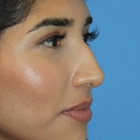
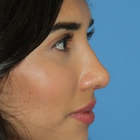
Full-side view
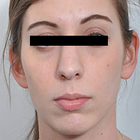
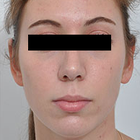
Front view
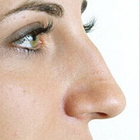
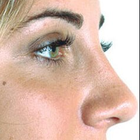
Full-side view
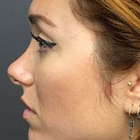
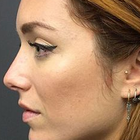
Full-side view
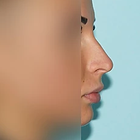
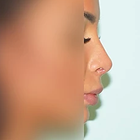
Full-side view
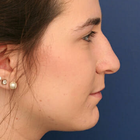
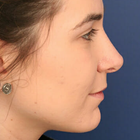
Full-side view
WHY US?
At Medijump, we're making medical easy. You can search, compare, discuss, and book your medical all in one place. We open the door to the best medical providers worldwide, saving you time and energy along the way, and it's all for FREE, no hidden fees, and no price markups guaranteed. So what are you waiting for?

Free

Best Price

Widest Selection

Risk-Free
What you need to know about Nose Surgery in Ramat Gan
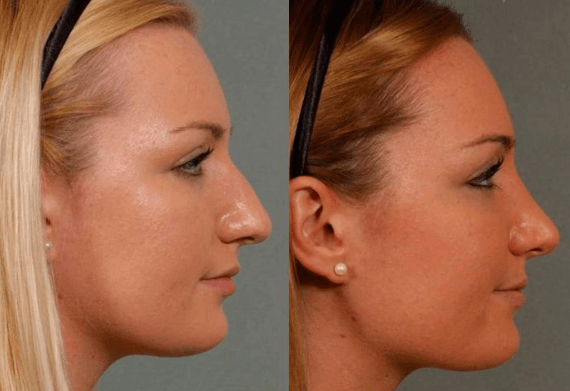
Commonly referred to as a Rhinoplasty, it is the medical term for reshaping of the nose or corrective surgery of the nose. It is one of the most common facial plastic surgeries (Facelift) procedures performed. Nose surgery can be performed to change the consequence of genetics, birth defect or nasal injury. It can be performed to enhance the appearance and/or to improve nasal breathing.
Surgery can be performed to correct nasal humps, the curvature of nose-bridge, nose tip irregularities, and asymmetry in the nostrils. The nasal appearance can be altered in various ways using intra-nasal chisels. Nose surgery procedures generally fall under three types: open rhinoplasty, closed rhinoplasty, and tip rhinoplasty. Rhinoplasty is normally performed under general anesthesia and will not leave any visible scars on the nose.
What does a Nose Surgery Procedure Involve?
Nose surgery is an individualized surgery. Before the surgery, you will need to discuss important factors with your surgeon to determine if it is suitable for you. Your surgeon will review your medical history, including your previous surgeries, medical conditions, and any medications you are taking. You will need to have a complete physical examination, such as blood tests. Your surgeon will also consider your other facial features, the skin on your nose, and what you would like to change or correct. Then, your surgeon will develop a customized plan for you. Two weeks before and after surgery, avoid any medications that contain aspirin or ibuprofen, such as Advil and Motrin IB because these medications can increase bleeding. You will need to also stop taking herbal remedies and over-the-counter supplements. If you are an active smoker, stop smoking because smoking can slow your healing process and increase the risk of getting an infection.
During the actual surgery, you will be given either local anesthesia or general anesthesia. The type of anesthesia depends on how complex the surgery is and what the surgeon would prefer to use. Then, the surgery will start by making incisions inside your nose or at the base of your nose between your nostrils. Your surgeon will reshape the inner bone and cartilage underneath your skin to make a more pleasing appearance.
There are several ways to change the shape of your nasal bones or cartilage, depending on your nose’s structure and how much needs to be removed or added. If only small changes are required, your surgeon may use cartilage taken from deeper inside your nose or your ear. However, for a much larger change, your surgeon may use cartilage from your rib, implants, or bone from other parts of your body. When the changes are finished, your surgeon will place the nose’s skin and tissue back. The incisions will be closed by stitches.
How Long Should I Stay in Ramat Gan for a Nose Surgery Procedure?
If everything goes well, you can go back to your hotel on the same day once the effects of anesthesia wear off. However, you will need to stay in a recovery room for a few hours so the staff can monitor you. Some people may need to stay in hospital overnight. After you are discharged from the hospital, you will need to stay in Ramat Gan for at least 10 to 14 days for initial recovery, follow-up checkups, and for the stitches to be removed.
What's the Recovery Time for Nose Surgery Procedures in Ramat Gan?
The recovery period for nose surgery can be different from person to person. In general, 2 to 3 weeks is needed until you can get back to your full normal routine and 3 to 6 weeks until you can do any strenuous activity. However, you should be able to go back to work within a week, except if your job requires strenuous physical activity. You will feel gradually better each day in the first week. You will experience swelling, which can take six months to subside. The only people who will notice the swelling is you and your surgeon. Your final nose shape will be apparent after it is completely healed.
What sort of Aftercare is Required for Nose Surgery Procedures in Ramat Gan?
After the surgery, you may need to wear a nasal splint for the first week. The splint is used to protect and support your nose. Your nose may be congested due to swelling or from the nasal splint. You need to rest in bed with your head raised higher than your chest to reduce bleeding and swelling. For a few days after the surgery, you may also experience slight bleeding and drainage of mucus. Your surgeon may place a “drip pad” under your nose to absorb drainage.
Your surgeon may ask you to avoid strenuous activity, take baths instead of showers, avoid blowing your nose, eat high-fiber foods to avoid constipation, not to do any facial expressions (smiling or laughing), not wearing pull clothing and wear button-downs instead.
For at least several weeks after the surgery, do not rest eyeglasses or sunglasses on your nose to prevent pressure. You should also wear SPF 30 sunscreen when you are outside because too much sun can cause permanent irregular discoloration to your nose. Do not put anything such as ice or cold packs on your nose even though it is swelling as the swelling will go away faster by limiting your dietary sodium.
What's the Success Rate of Nose Surgery Procedures in Ramat Gan?
Nose surgery is known to have around 80% to 90% success rate. Nevertheless, just like any other surgery, it still has possible risks and complications. These risks are bleeding, infection, numbness, permanent nerve damage, and an adverse reaction to the anesthesia. You should call your surgeon immediately if you suspect any of the symptoms. Other possible risks are difficulty breathing through your nose, uneven-looking nose, persisting pain, swelling, and discoloration, scarring, septal perforation, and the need for a second or third surgery.
For an in-depth analysis of the closed rhinoplasty procedure with before and after images, watch this short video.
Are there Alternatives to Nose Surgery Procedures in Ramat Gan?
If you do not want to undergo surgery, or if it is not suitable for you, you can get filler injections, such as Botox, Juvaderm, and Restylane. They can change the shape of your nose and only require a short visit to the doctor. This method is not painful and needs no incisions or stitches.
Whilst the information presented here has been accurately sourced and verified by a medical professional for its accuracy, it is still advised to consult with your doctor before pursuing a medical treatment at one of the listed medical providers
No Time?
Tell us what you're looking for and we'll reachout to the top clinics all at once
Enquire Now

Popular Procedures in Ramat Gan
Prices Start From $404

Prices Start From $111

Prices Start From $70

Prices Start From $220

Prices Start From $1,945

Prices Start From $192

Prices Start From $500

Recommended Medical Centers in Ramat Gan for Nose Surgery

- Interpreter services
- Translation service
- Religious facilities
- Medical records transfer
- Medical travel insurance
- Health insurance coordination
- TV in the room
- Safe in the room
- Phone in the room
- Private rooms for patients available

- Interpreter services
- Translation service
- Religious facilities
- Medical records transfer
- Medical travel insurance
- Health insurance coordination
- TV in the room
- Safe in the room
- Phone in the room
- Private rooms for patients available

- Interpreter services
- Translation service
- Religious facilities
- Medical records transfer
- Medical travel insurance
- Health insurance coordination
- TV in the room
- Safe in the room
- Phone in the room
- Private rooms for patients available

- Interpreter services
- Translation service
- Religious facilities
- Medical records transfer
- Medical travel insurance
- Health insurance coordination
- TV in the room
- Safe in the room
- Phone in the room
- Private rooms for patients available

- Interpreter services
- Translation service
- Religious facilities
- Medical records transfer
- Medical travel insurance
- Health insurance coordination
- TV in the room
- Safe in the room
- Phone in the room
- Private rooms for patients available

- Interpreter services
- Translation service
- Religious facilities
- Medical records transfer
- Medical travel insurance
- Health insurance coordination
- TV in the room
- Safe in the room
- Phone in the room
- Private rooms for patients available

- Interpreter services
- Translation service
- Religious facilities
- Medical records transfer
- Medical travel insurance
- Health insurance coordination
- TV in the room
- Safe in the room
- Phone in the room
- Private rooms for patients available

- Interpreter services
- Translation service
- Religious facilities
- Medical records transfer
- Medical travel insurance
- Health insurance coordination
- TV in the room
- Safe in the room
- Phone in the room
- Private rooms for patients available

- Interpreter services
- Translation service
- Religious facilities
- Medical records transfer
- Medical travel insurance
- Health insurance coordination
- TV in the room
- Safe in the room
- Phone in the room
- Private rooms for patients available

- Interpreter services
- Translation service
- Religious facilities
- Medical records transfer
- Medical travel insurance
- Health insurance coordination
- TV in the room
- Safe in the room
- Phone in the room
- Private rooms for patients available
Nose Surgery in and around Ramat Gan
Popular Searches
- Plastic Surgery in Thailand
- Dental Implants in Thailand
- Hair Transplant in Thailand
- Breast Augmentation Thailand
- Gastric Sleeve in Thailand
- Gender Reassignment Surgery in Thailand
- Laser Hair Removal in Bangkok
- Botox in Bangkok
- Dermatology in Bangkok
- Breast Augmentation in Bangkok
- Coolsculpting in Bangkok
- Veneers in Turkey
- Hair Transplant in Turkey
- Rhinoplasty in Turkey
- Stem Cell Therapy in Mexico
- Rhinoplasty in Mexico
- Liposuction in Mexico
- Coolsculpting in Tijuana
- Rhinoplasty in Korea
- Scar Removal in Korea
- Gastric Sleeve in Turkey
- Bone Marrow Transplant in India
- Invisalign in Malaysia
- Plastic Surgery in the Dominican Republic
- Tummy Tuck in the Dominican Republic
- Plastic and Cosmetic Surgery in Poland
- Rhinoplasty in Poland
- Hair Implant in Poland
- Dental Implants in Poland
- IVF in Turkey
